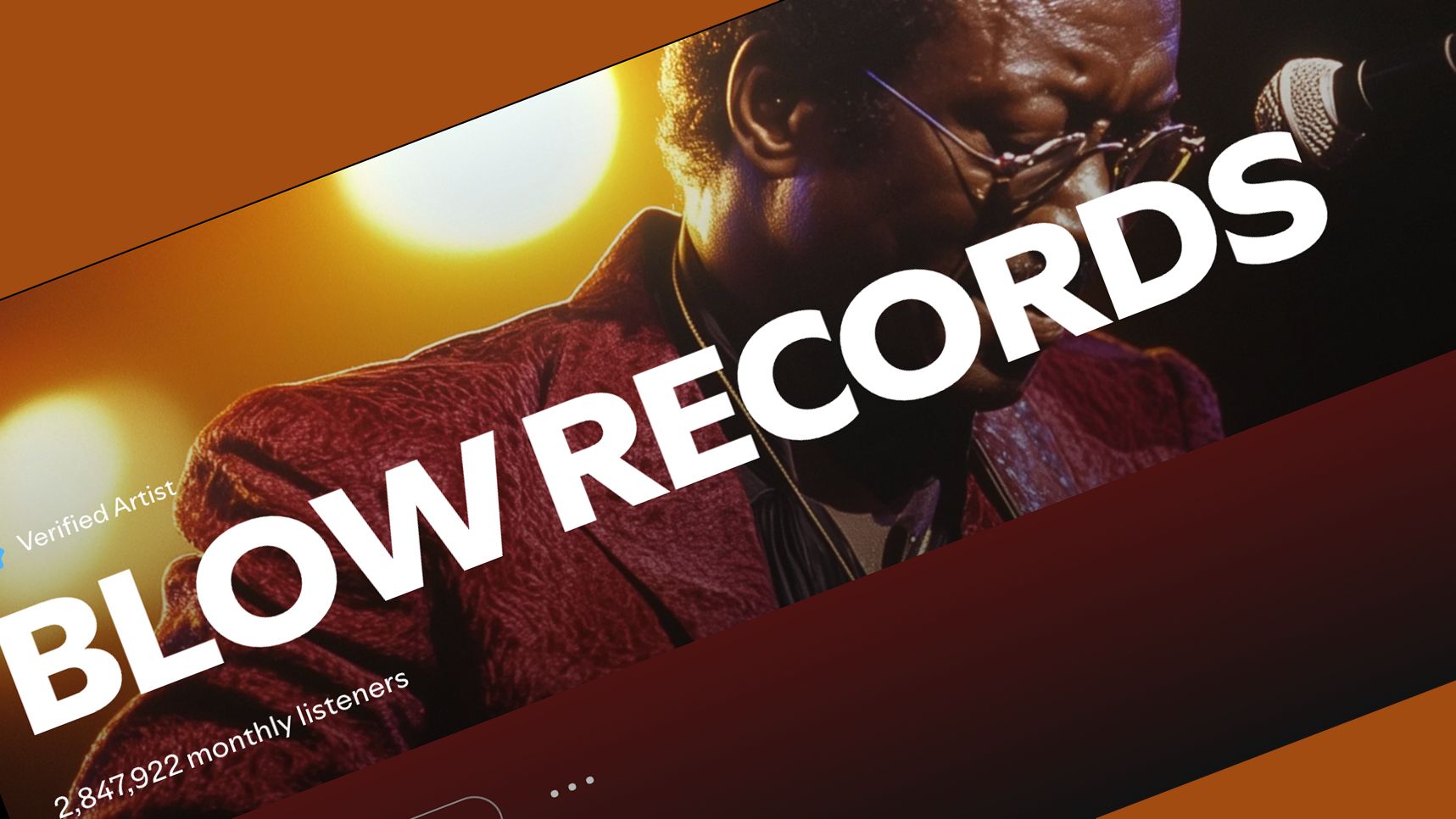Barely a week goes by without some alarming stat revealing just how much AI is gradually reshaping music – and thus human culture.
Now the ticketing organisation Seat Pick has done some calculations and worked out the highest-earning AI names on Spotify. Coming out on top are Blow Records, which isn’t a label but an ‘artist’. It (which is presumably the correct pronoun to use here) amassed over 45 million streams in 2025, earning £123,176.09 for its creator.
Blow Records’ biggest hit is Predator de Perereca, which was a huge TikTok sensation and has 2,830,449 monthly Spotify listeners. To put that in some sort of perspective – that’s more than double the amount that wholesome Brightonian pop rappers Rizzle Kicks have, at 1,019,000.
In second place is Biscuit Beats, which – for the uninitiated – is best known for ‘hilarious’ country-style novelty songs; its creators have earned £67,891.16 from nearly 25 million Spotify streams.
Coming in third is Xania Monet, a 90s R&B-influenced ‘singer’ who has recently signed a multi-million dollar contract with Hallwood Media. Of all the names on the Seat Pick list, Monet has the biggest chance of converting online success into actually selling tangible music like CDs. So far, the Monet project has earned £50,021 from Spotify.
Next after Monet are a prosaically-named project called Beats by AI and our old friends Velvet Sundown. Despite being swiftly uncovered as an ‘art hoax’ earlier this year, the latter still have 268,000 monthly listeners. Rounding off the Top 10 are Bleeding Verse, the AI rock band that severely irked Cardiff band Holding Absence – one of the artists its been trained on – by having more Spotify listeners, as well as Aventhis, Nick Hustles, The Devil Inside and Obscurest Vinyl.
It should be noted that all of those ‘artists’ are now earning more money from streaming than the average working musician in the UK. Blow Records has accrued four times the average UK wage in just Spotify royalties.
What does this all mean? We’re still in an early stage of the AI revolution. It may be that in ten years’ time, people simply won’t care whether Xania Bonet is real or not, in the same way that Lana Del Rey’s fans are at ease with her essentially being a character played by Lizzy Grant.
It could be that this is a passing phase, in the same way cartoon bubblegum groups such as The Archies were in the late 1960s. Or this could be – to paraphrase Pulp – the way the future’s going to feel.


